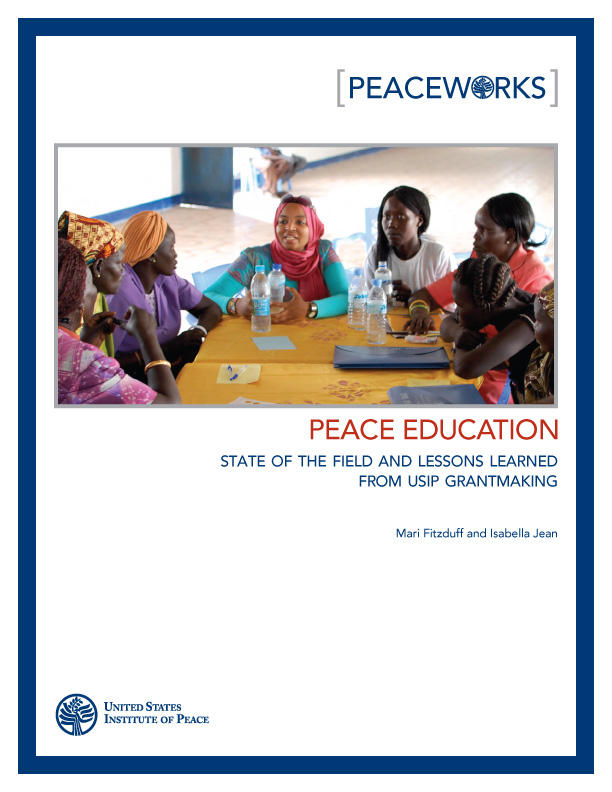Peace Education
A new study takes stock of grantmaking in the area of peace education. It urges more support for creative, long-term approaches that test theories of change and are rooted in conflict analysis, sound evaluation plans, and indigenous approaches to peacebuilding in the classroom.

Summary
- Over the last several decades, the field of peacebuilding has progressively formalized, leading to the development of academic programs, training, advocacy, and practice on peace and conflict issues.
- Several leading models have emerged, including peace education, which effectively incorporates other approaches that focus on the psycho-cultural, structural, and institutional dimensions of conflict.
- The evolution of peace education reflects input from numerous disciplines, forms of pedagogy, and underlying theories of conflict and change—all of which present challenges for defining its boundaries and assessing its impact.
- The main areas of related work include developing instructional content, preparing teachers, pursuing the structural and policy changes required to mainstream peace education, promoting initiatives at the community level, and engaging in public awareness campaigns.
- Experience indicates that the viability and long-term effectiveness of peace education interventions hinge on increasing capacity, adopting a strategy of instruction that covers a wide array of topics and reaches a range of constituencies, altering mentalities about learning as well as worldviews, and providing systemic support together with appropriate institutions and resources on a sustained basis.
- Key issues going forward include achieving greater clarity and consensus in terminology and goals, ensuring space for and capitalizing on indigenous methods, demonstrating tangible impact yet finding a constructive balance between activism- and evidence-based justification, complementing other tools of conflict resolution and peacebuilding, scaling up and replicating successful interventions, and providing expert assistance and conducting rigorous assessments essential to translating theory into effective practice.
- The USIP Grant Program should continue its support for peace education initiatives, devote more attention to building the capacity of grantees, engage in sophisticated evaluation, and consolidate and disseminate the insights from their projects. It should also build deeper relationships between grantees and other parts of the Institute.
About the Report
This report is a result of an initiative to reflect on developments, contributions, and prospects in specific areas where USIP grantmaking has been concentrated. The authors were commissioned to review the state of the field, to identify the lessons learned, and to contemplate future directions of work in the area of peace education, with reference to USIP grantmaking.
About the Author
Mari Fitzduff is professor and director of the international Master of Arts Program in Coexistence and Conflict at Brandeis University. She held a chair of conflict studies at the University of Ulster, where she was director of UNU/INCORE. She also served as chief executive of the Northern Ireland Community Relations Council. She has worked on programs addressing conflict issues in many countries and is called on as an international expert by many governments and international organizations.
Isabella Jean is an adjunct lecturer at Brandeis University’s Heller School of Management, where she teaches Introduction to Design, Monitoring and Evaluation of Coexistence Interventions.



